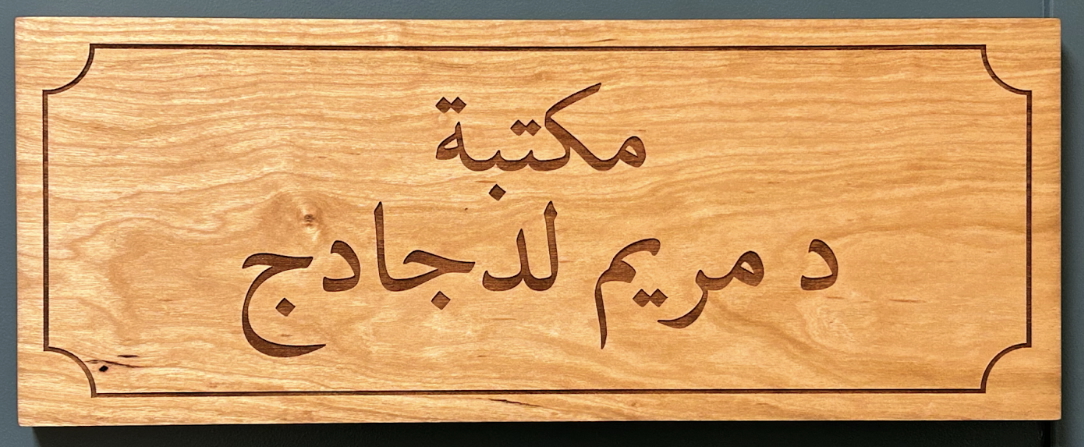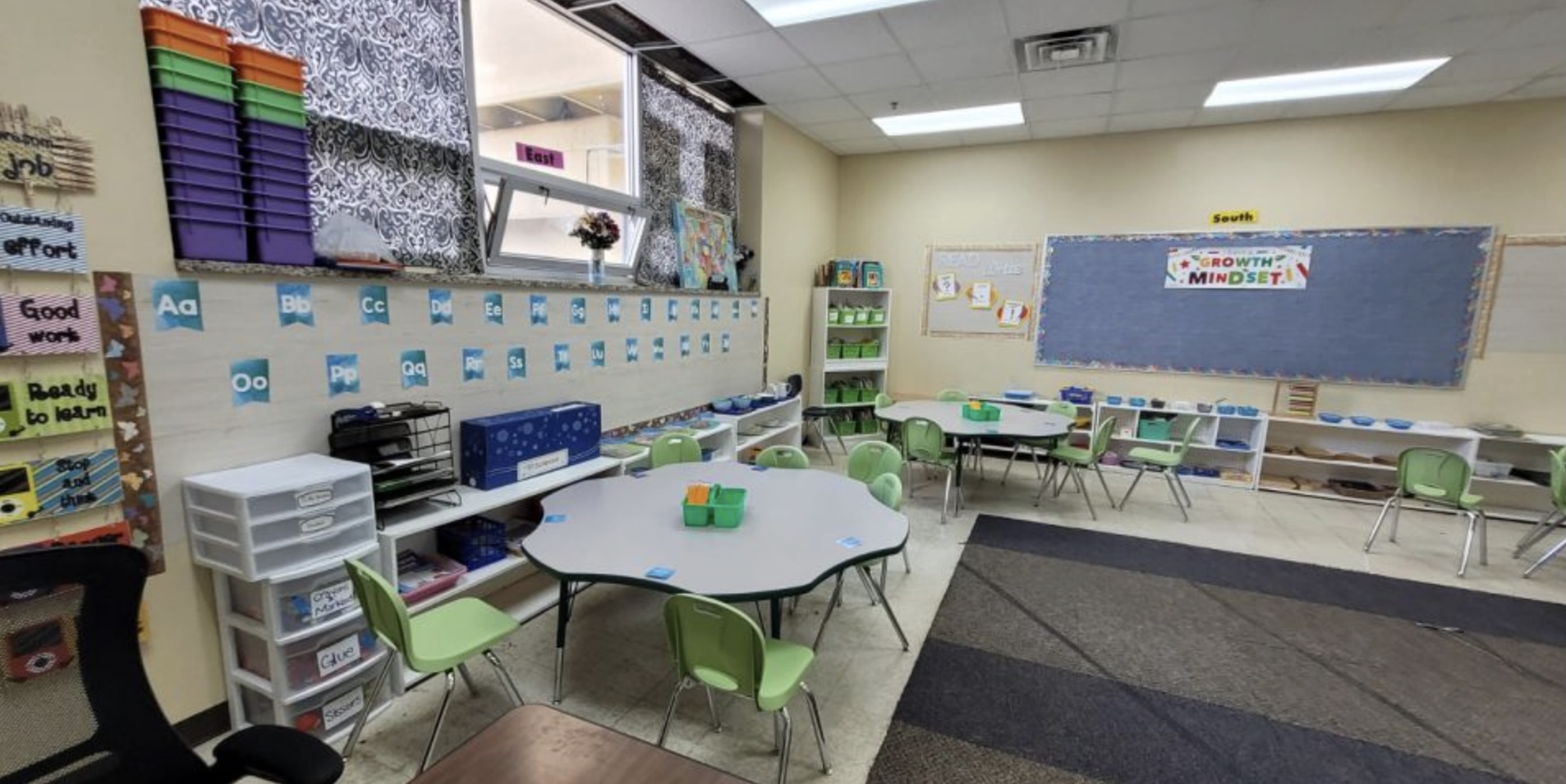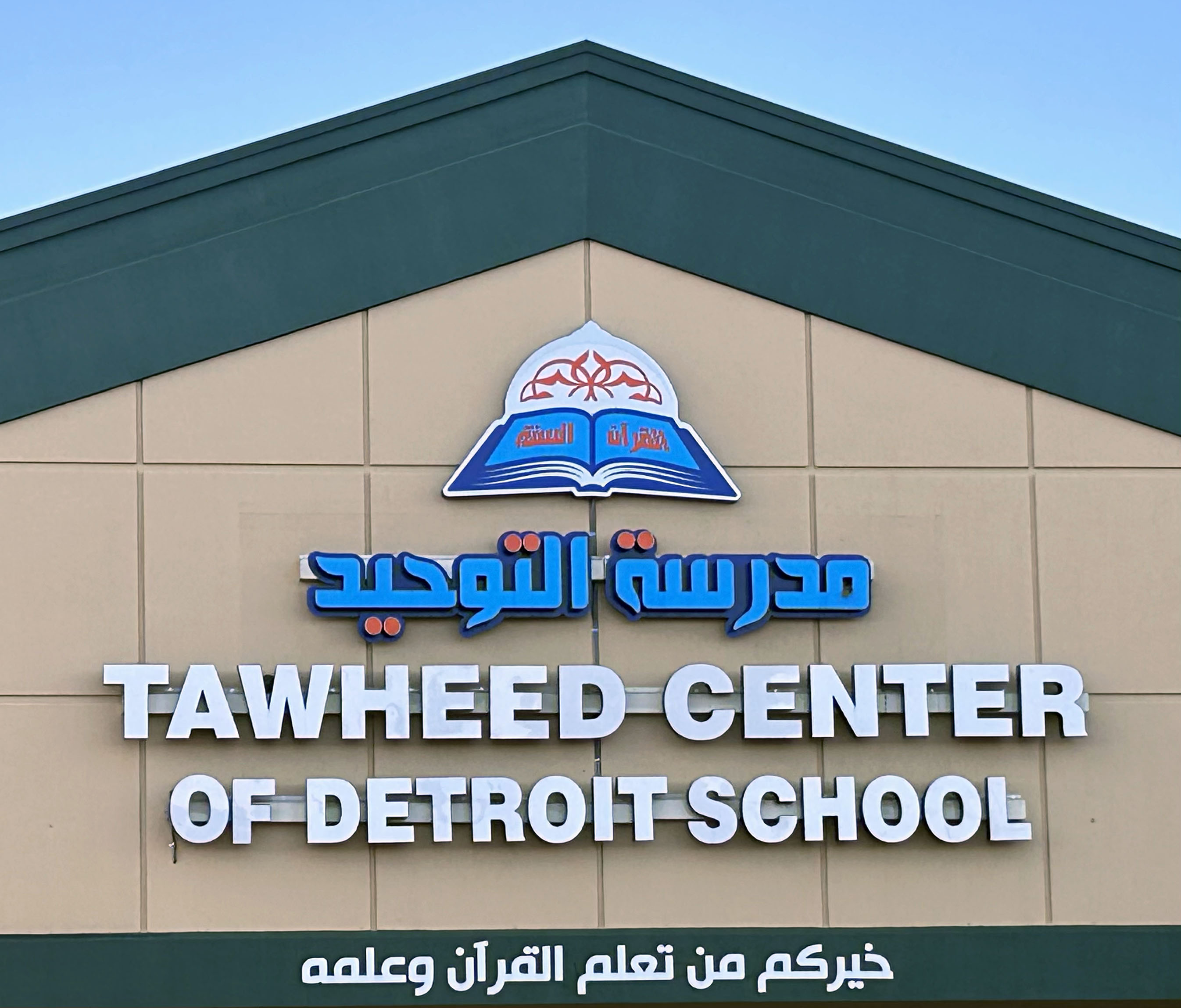Remembering the Founder of the Tawheed Center of Detroit

Dr. Meriem Ladjadj, who passed away less than two years ago, has now been honored at one of the many schools she founded during her lifetime. The Tawheed Center of Detroit, having recently completed construction of its school, is dedicating the school library to Dr. Ladjadj.
With hardly any trace online, Dr. Ladjadj has anonymously made a large impact for Muslims, Arabs, and women in history.
Born and raised in Algeria, Dr. Ladjadj married her first husband before having been chosen by the French military to study at their schools. At the time, people were rarely educated in French schools. To fix this issue, the French military would choose students from countries like Algeria to study in France.
One of the first Algerian women to attend French schools, Dr. Ladjadj excelled in her studies. Her daughter, Fatima Guessoom, openly shared her late mother’s story. Guessoom says her mother “had fourteen siblings, and was the most academically inclined one of them all. She’d bribe her siblings as children to do their homework in exchange for them doing her chores.”
Dr. Ladjadj attended university in Algeria and then moved to France where she finished her Ph.D. Afterward, Dr. Ladjadj worked in Leon, France. Guessoom says, “My grandfather was an illiterate Algerian man who owned a bus business that offered transportation for those travelling from Algeria to Mecca for Hajj. Since he was illiterate, my mother, Dr. Ladjadj was his secretary. She’d write and read for him, do his accounting and make posters for his business.”
In Guessoom’s words, Dr. Ladjadj was very close with her father and he was her biggest cheerleader. Culturally, it was frowned upon to send one’s daughter abroad for education. However, her father knew she had potential and was more than happy to watch her flourish in her academics.
Even though she pursued a Ph.D. in chemistry; Dr. Ladjadj learned and studied a little bit of everything. When studying the development of computers, she’d told Guessoom, “one computer back then was the size of a warehouse. This was for all the different components for the calculations, using so many different machines to make just one computer.”
Dr. Ladjajdj was invited to the United States by the National Institute of Health. Dr. Ladjadj was also invited by Canada to work there. When given the option to work at Wayne State University or another institution in Canada, Dr. Ladjajdj chose to move to Detroit.
A pioneer in the laser work done at Wayne State University. Dr. Ladjajdj mentored many graduate students. Six batches of students had completed their Ph.D. degrees under Dr. Ladjadj.
Upon sending her daughter to the first Islamic School in Michigan, then “Clara Muhammad” now “Al-Ikhlaas,” Dr. Ladjadj soon became involved with the school as a principal and high school chemistry teacher. Dr. Ladjadj became involved in several Islamic schools in the region.
At the Tahweed mosque in Detroit, Dr. Ladjadj had the vision to start a private religious school for Muslim families in the metro Detroit area. Dr. Ladjadj did the paperwork to begin a school in the basement of the mosque and consulted with the people who were on the board that founded the school alongside Dr. Ladjajdj.
One of the board members, Dr. Tariq Buchh, is now the principal of Tawheed Center of Detroit School. Dr. Buchh was the Global Head of Functional Safety at Dana Incorporated, earning aPh.D in Power Electronics and having worked at the Indian Institute of Technology. While exploring a religious school for his children, Dr. Buchh met Dr. Ladjadj, and together they worked to start the school.
There were about fifteen students in attendance at the beginning. “But then, 9/11 happened. Consequently, we lost many of our students and teachers who decided to stay far away from Islamic institutions as a result of what happened and how Muslims were being treated in the events following 9/11,” Dr. Buchh said. Dr. Ladjadj persisted to create the school regardless of the discouragement she received.
Ghazala Khan, a school principal and close friend is another co-founder of the Tawheed Center of Detroit School. Khan met Dr. Ladjadj in 1998 at a time when Khan and her husband were looking for an Islamic academic institution for their children to attend.
Khan was a close friend to Dr. Ladjadj studied under her for several years until becoming the principal of the school herself. Their children remained close and until now, their children share wonderful memories and bonds unlike any other. “She was a wonderful woman,” Khan said, “and truly an inspiration to many of us to follow the path she made. I always enjoyed learning from her and her experiences as she always loved telling stories of her academia and her journey before coming to America. I would listen attentively and was inspired by her and her story at all times. She remained patient with me as I continued my path in academics and education at Wayne State and the University of Michigan.”
Dr. Ladjdj encouraged Khan to complete her degree in education as well as various other women and mothers. She was an unstoppable academic force and wanted to see the women around her flourish and enter the educational field, “What can I do with my Ph.D. in Chemistry? Education will always have a place in the world. Study education,” Guesssoom recalls her mother saying.
Even though it would take nearly two decades, Dr. Ladjadj worked towards building the school and mosque simultaneously until Tawheed Center of Detroit School bought out an old grocery store and transformed the building into their school using money from donations.
Ziyad Abdulaziz, a Tawheed graduate and senior at Henry Ford Early College working towards getting his associates degree in pre-engineering. Abdulaziz attended Tawheed from three to thirteen. “The teaching there was good, and the academics were strong. When I got to high school, I saw some of my peers struggling in certain areas whereas I didn’t feel like I was behind at all. As for the environment there, the environment at Tawheed was in some ways better than high school, because of the religious aspects that we shared and were more well-mannered than what I experienced in high school. It was very similar to Henry Ford so it didn’t feel like a big transition; it almost felt natural,” Moreover, Abdulaziz also shared the spiritual and religious aspects, “They taught us to be kind and helped with personality as well as academics and how to deal with people of different backgrounds and different situations and struggles we might come across in life after we left Tawheed.”
Abdulaziz was also chosen as valedictorian and was given the opportunity to write a speech about his experience as well as advice to his younger peers and deliver it to a large audience at his eighth grade graduation. Abdulaziz was also a part of the “Hifth Program” at Tawheed. Abdulaziz explains, “I was in hifth; it was from 5th grade and up accelerated learning, and we’re doing more than the normal amount compared to the other students at Tawheed. There was a lot of pressure; but it taught me that you can do more than you think you can. You just have to try. Like I had to learn how to manage my time responsibly- in the beginning I wanted to drop out, but once I learned how to manage my time and put in more effort I was able to complete the class efficiently.”
Abdulaziz added, “I am still close with my friends from Tawheed, and growing up together initiated a strong bond between us that we share even as we have parted ways and gone to different high schools; our friendships remained the same.” Tawheed was more than a school to Abdulaziz but also gave Abdulaziz a sense of family; his mom had been a teacher there, and his two older brothers graduated from Tawheed. Zakaria Abdulaziz is now a student at Wayne State University and Emad Abdulaziz is now a business intelligence systems analyst at Henry Ford College.
Asiyah Shoeb attended Tawheed from kindergarten to eighth grade before attending Henry Ford Early College and then the University of Michigan-Dearborn. “One of the most important things I had learned in my years at Tawheed was etiquette and how to carry yourself with respect and dignity. We learned so many things and strengthened our morals at a very young age, as well as the morals we are taught in Islam, that I carry with me till this day. Another beautiful thing about Tawheed was the friendships we made; there are friendships we never grew out of, and people I remain close to even as we have parted ways. There’s a certain bond we have that even if we haven’t spoken for a long period of time, it is as if time was never lost.”
Shoeb also explained that every 8th grade class was required to organize large events such as the annual fundraising dinner where each class coordinates with one another and establishes their synergy to present in front of an audience of over 200 attendees. There were also various other opportunities presented to the students at Tawheed, such as the annual science fair at SEFMD where, many times, students from Tawheed placed tier one, two, and three. Students also participated in annual competitions such as the young author’s competition where each class is given a single genre of literature to write and three students out of the class, after several judges have read the books as given to them anonymously, will be chosen for first, second, and third place.
Abulaziz and Shoeb both explained that their years at Tawheed had a tremendous impact and taught them various aspects of life experience such as religious morals, prioritizing academics, and managing life’s challenges. It is impactful knowing the full story behind its creation and the life of the late founder which led her to opening such a school and how it would later impact generations after her.


